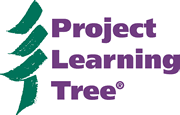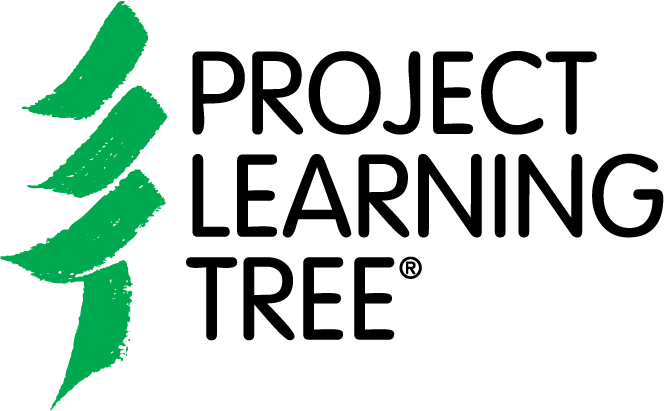September 17, 2020
We are thrilled to announce that our very own Rachel Lang has been recognized as part of the North American Association for Environmental Education’s (NAAEE) EE 30 Under 30 Class of 2020! As PLT’s Manager of Education Products, Rachel is integral to the award-winning success of our environmental education materials and outreach, and the passion and innovation she brings to her work is reflected in this recent accolade from NAAEE.
Since 2016, NAAEE’s EE 30 Under 30 program has recognized 150 individuals from around the world who are making a difference through environmental education. To address today’s complex challenges, a diversity of perspectives, skills, and experiences are needed. EE 30 Under 30 celebrates the unique and passionate leadership of the young people changing the world through environmental education.
We are honored to count one of PLT’s national staff amongst such an impressive cohort of global leaders! We are proud of Rachel’s commitment to social and environmental justice and the critical lens with which she approaches her work, including creating inclusive and intersectional educational products to help educators be more equitable and effective.
NAAEE’s Q&A with Rachel Lang
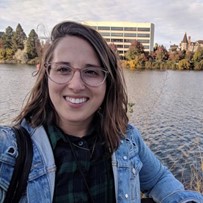
Rachel Lang
Manager of Education Products, Project Learning Tree
Arlington, VA, United States
Age: 29
Rachel is a social and environmental justice advocate supporting educators to inspire the next generation of sustainability leaders.
How are you using education to build more sustainable and equitable communities?
I’m dedicated to inspiring the next generation of sustainability and environmental leaders by supporting educators with curriculum resources and professional development. As the Manager for Education Products for Project Learning Tree (PLT), I bring expertise in social and environmental justice to support the development of curriculum, which reaches 15,000 educators annually.
I strongly believe that for us to be effective educators, both the materials we use and our approach must be inclusive and intersectional. I also take this approach working in my community in Arlington, Virginia, as a member of the Superintendent’s Advisory Committee on Sustainability (SACS). I offer EE expertise to SACS, contributing to the development of annual guidelines and deliverables to support educators seeking to add EE to their lesson planning. I also reach educators through professional development at national tradeshows and teacher conferences, including leading educator trainings about best practices for equity and inclusion.
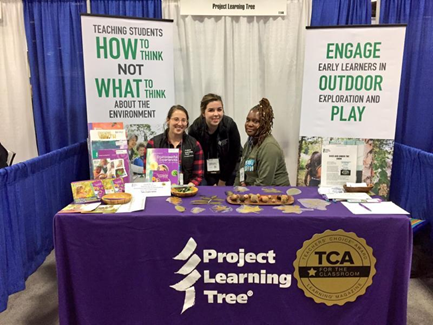
Tell us about your journey to where you are today.
A pivotal moment leading me to EE occurred when I was working as a violence prevention educator for a family justice and domestic violence center – a field of work that at the time felt vastly different than EE. I worked mostly with teens and children impacted by family violence. The experiences they shared revealed that cycles of family violence are compounded by other issues such as economic agency, food access, and proximity to healthy (or unhealthy) natural environments.
This was my ‘aha’ moment – realizing that creating a socially just and violence-free community was deeply tied to the principles of sustainability. I sought to learn more about this intersection and pursued my Master’s degree in conflict analysis and resolution. Thus, my career in EE began. Working in the EE field has allowed me to ignite an interdisciplinary approach to global issues of the environment, social justice, and conflict to inspire the next generation through EE.
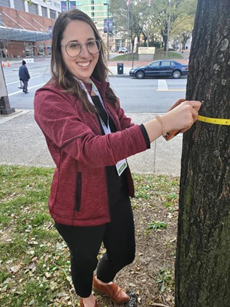
What advice would you give to the next generation of leaders?
Keep going – you have an impact! What I admire about young leaders is their relentless and unwavering commitment to making the world more sustainable, equitable, and intersectional. I want them to know that they are doing all the right things and not to give up. Community advocacy is a challenging and long-term commitment. I encourage young leaders to celebrate the small victories and keep sights on the big picture.
I also want to challenge young leaders to listen to the most vulnerable and underrepresented voices and learn from them about the impacts of injustice and climate change. As a leader, it is important to know when you should speak up and when you should listen. Don’t turn away from opportunities to learn from others. Challenge yourself to have honest conversations about how we may disrupt or hold up systems of privilege, power, and oppression in our work. Keep doing the work and grow!
What keeps you motivated, inspired, and/or hopeful for the future?
I am continually inspired by the amazing educators and young leaders working to make EE a more equitable field. At PLT and in my community, I am surrounded by educators and changemakers who share a vision for an equitable future that includes social, racial, and environmental justice and calls for an end to systemic and direct violence and oppression. I value their experiences and appreciate their willingness to hold me accountable. I am motivated daily by their commitment and creative solutions.
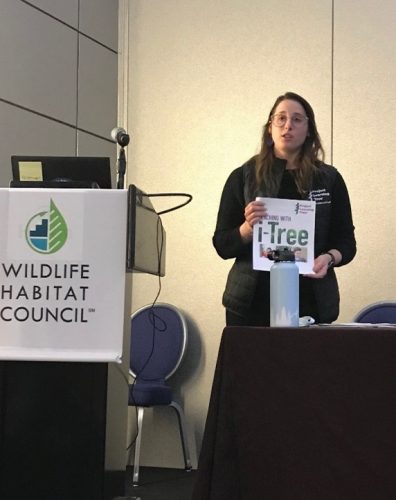
Describe your work in a haiku.
Have courage to grow
Value voices on the ground
Perspective guides me
Hear Rachel Speak at NAAEE’s 2020 Virtual Conference
Rachel will be making several presentations at NAAEE’s 2020 Virtual Conference, to be held this October 13-16, including:
- Using PLT To Teach about Environmental Justice and Health Equity — Roundtable Discussion
- Growing Future Forest and Conservation Leaders with Green Jobs — Hands-on Presentation
- Inspiring the Next Generation of Green Professionals — Bright Spot, 30 Under 30 Cohort
Learn more about the NAAEE Conference, the speakers and sessions, and register to attend.
The Q&A with Rachel Lang is reprinted with permission from the North American Association for Environmental Education; view the original here and watch this NAAEE video clip (1:24): We asked our EE 30 Under 30, “What Does a Sustainable and Equitable Future Mean to You?”
